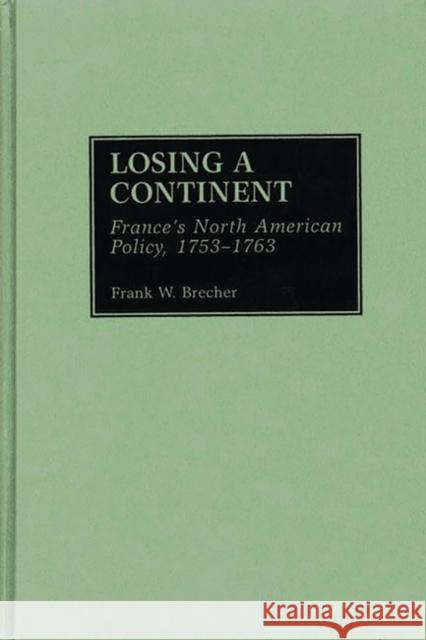Losing a Continent: France's North American Policy, 1753-1763 » książka
Losing a Continent: France's North American Policy, 1753-1763
ISBN-13: 9780313307867 / Angielski / Twarda / 1998 / 240 str.
England's capture of Canada in 1760 was the culmination of the French and Indian War and of a century and a half of conflict between Britain and France for control of the North American continent. During that long period, there were several English military efforts to evict the French, but all failed. Therefore, at the war's start, few among the English entertained serious thoughts of totally evicting France from all of Canada. Nor did the French consider such a result a serious possibility. Drawing heavily on primary sources, Brecher tells the dramatic story of why the war's outcome differed so sharply from original expectations. He does so from the vantage point of France, while demonstrating in greater depth than has been available to date the linkages between France's American policy and involvement in the Seven Years' War.
Brecher provides an unprecedently full-scale analysis of the political, military, social, and economic conditions of mid-18th-century France and its North American colony, New France. That analysis also examines the direct connection between those internal conditions and the results for France of the war that ended in 1763. In doing so, Brecher assesses France's military strategy and major battles in Europe and America, as well as the diplomatic goals Versailles set for itself in the conduct of the war. Further, he describes why France concurred in leaving not only Canada, but also the vast Louisiana territory, to be divided between England and France's belated wartime ally, Bourbon Spain. Finally, Brecher explains the longer-term implications of the war for North American development and for the future of France. This is an important study for students and scholars of French and colonial American history and for the broad reading public, as well as those interested in the more recent Quebec problem.











